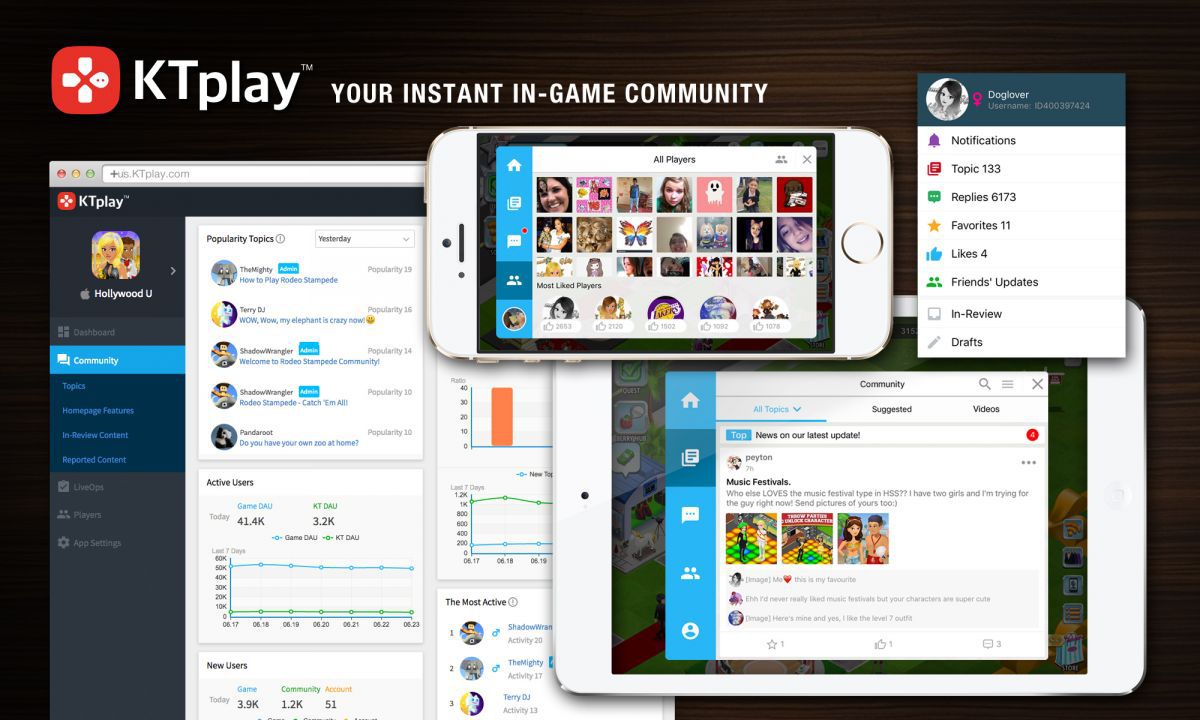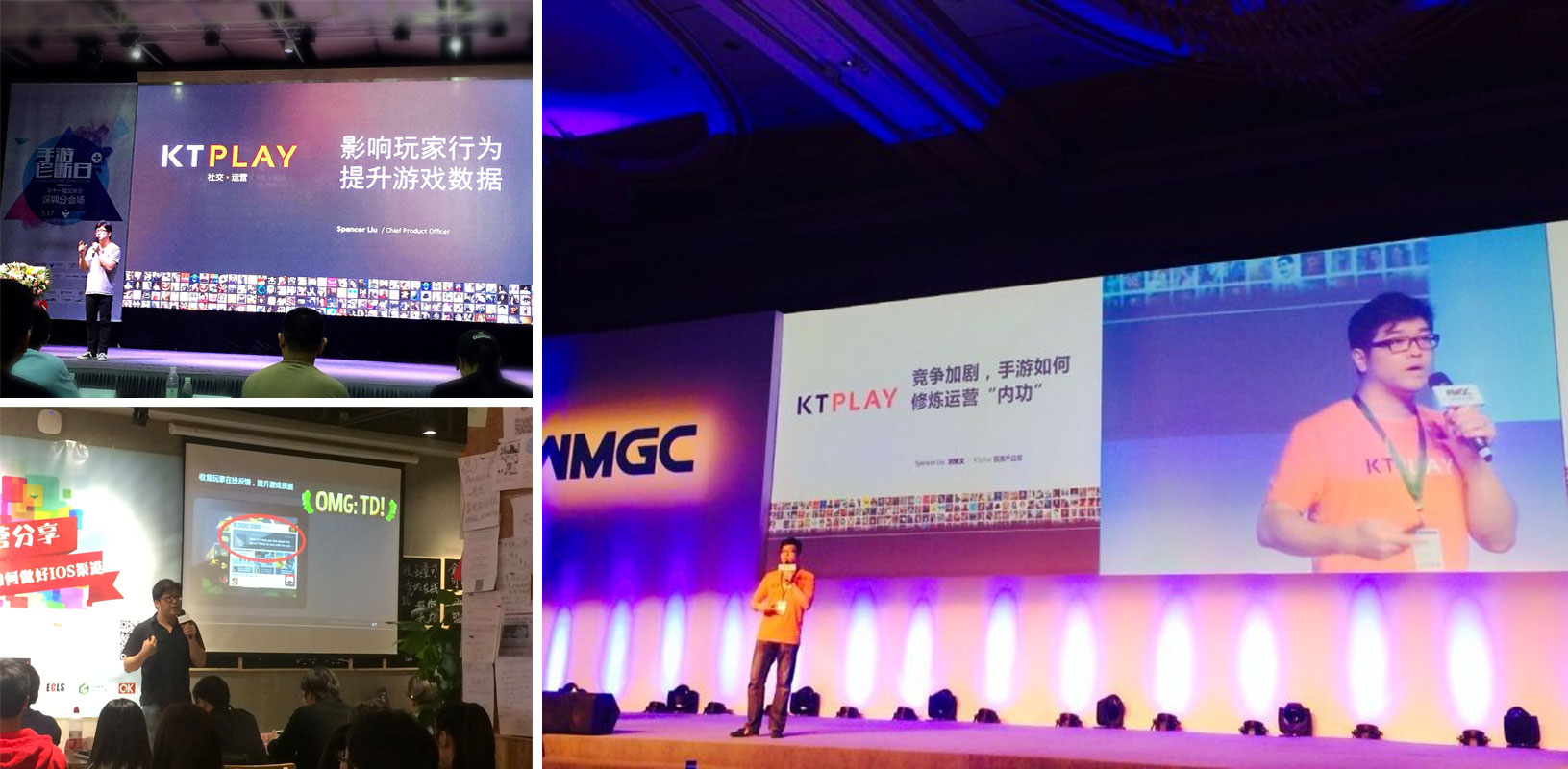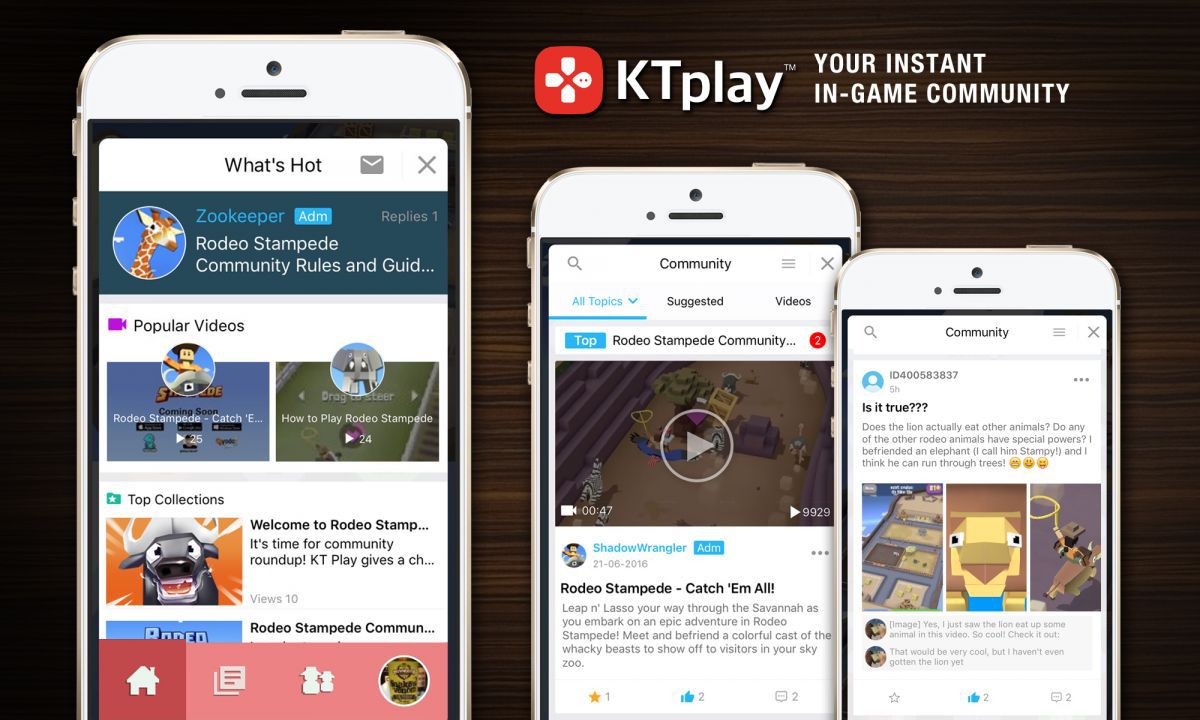KTplay is a solution for instant mobile in-game communities headquartered in Beijing with offices in Boston. Founded by Spencer Liu, inspiration struck when he became increasingly frustrated about having to leave the games he was playing in order to hunt across the web for tips to advance to the next level. Spencer shares the story of the startup’s successful evolution from idea to product.
Breaking Away
KTplay initially started as part of Yodo1 Games, a mobile games publisher platform in China bringing Western content into the Chinese market. We started as an internal R&D team tasked to solve specific business problems we were facing, such as cross-promoting other game titles to our players, increasing socialization within games, and launching live events to maximize retention and metrics. We realized the importance of player-to-player social capabilities and wanted to build a social-oriented platform that could serve as a place where players could share their gaming experiences with each other and at the same time, that would function as a liveops platform for developers and publishers to influence players’ in-game behavior.

The A-Team
China is a highly volatile place when it comes to hiring and keeping valuable employees. Unless you are a big player that can offer a high salary and a well-known brand name, companies in the mobile sector two years ago were experiencing a minimum 30-40% employee turnover every year. Back then, everyone expected you to make them very rich in just a year and no one had the patience to wait. Those in the gaming industry were getting four to five calls every week on average from headhunters offering to double their salary overnight.

Knowing this about the market condition and myself, whose entire career and experiences was from Silicon Valley, I knew I needed to be surrounded by people who are more experienced than I was when it comes to managing and building teams in China.

My founding team at KTplay consisted of CTO Marcus Chan who has over 24 years of experience within the technology industry. Marcus comes from Microsoft China, where he served in various senior technical positions, most recently the Technology Director for Microsoft Greater China. The other founding member Billy Tang, our COO, is also a serial entrepreneur and technologist who successfully built and sold a biometric technology company. Billy came with a proven startup management track record especially in mainland China. The rest of our 37 employees are all local Chinese employees, with the majority of senior managers and leads being trained directly by us from the ground up.
We have also been growing a handful of people by encouraging them to express their opinions, allowing them the freedom to disagree, and always giving them the opportunity to present their case and solution in an open, honest, and sincere way. This might sound like the norm in the West, but is actually quite rare in China. By doing so, we’ve been witnessing these employees become more passionate about their hours at work, serious when it comes to the quality of their work, and ultimately become mature, engaged and decision-makers within the company.
Tug of War
Like any other startup, our journey to launch KTplay has been filled with many ups and downs. When we started, KTplay had the potential to be everything to everyone. Everything meaning anything that has an impact on game metrics: from liveops tools, data analytics, forums, to chat and live events, and more. Regardless of how much our partners tell us about features they really want us to build, the biggest challenge was to put a stake in the ground at the beginning and focus on our unique value proposition and nothing else. At every turn, developers, and publishers would give us feedback pushing product requirements that drove us in all directions.

However, as the industry matures for the better, the team also becomes more focused and disciplined at discerning market feedback. We now have a better process to listen to our customers, evaluate their requests, and decide on the roadmap that fits our long-term vision for KTplay. We want to bring the most value to game developers in context of influencing player behaviors while providing a fun and interactive experience for players to engage and share their gaming experiences with one another.

Alpha and Beta
During the initial testing period of our product in late 2014 in China, as we presented our value proposition to our potential partners trying to get them to use our product, almost 100% of the time we encountered blank stares from these partners, or lots of questions. “Building a player community? Why do I want to create a new job for myself?” “How much return can you guarantee me in terms of revenue if I commit to managing my community?” “My game will probably only live for couple of months and die, there is no point of dealing with players.”
Knowing that the game development community in China still had a long way to go before they could understand and appreciate the importance of building and influencing their player communities, we changed our tactics from “selling” to “educating.” We started working with a few games intensively, helping them to create use cases, documented player interactions, presented liveops, and live event plans that showed measurable results. We knew the only way to show the value of KTplay is not by talking about it, but by real metrics showing the results from real games in the market.

Slowly we gained momentum, and landed our first big customers, Nikki Up2U, the most popular dress-up games in China, and Carrot Fantasy, the most popular casual tower defense game in China with over 350M downloads. We worked closely with these two games on every aspect of using our product and created amazing, fun, real results. This was a hugely important turning point for our company.
Take Off
Officially launching KTplay in China in early 2015 was both fun and challenging. Chinese game developers back then were short-sighted and the industry was largely filled with small independent studios. It was during the days where investors all wanted to have a piece of the mobile gaming pie, and no one seemed to have any problem raising money. As the new kid on the block offering something that’s never existed before, we had to do a lot of work bringing the developer community up to speed and letting them know the importance of managing their players. We not only had to provide a platform and tools, but through our experiences managing and running our own games we knew we had to create a series of product tutorials, training materials, and share best practices to make the true value proposition known to the development community in China. This took a lot of work. However, it’s worth it. A year later, for the past four months all the Featured Games in China on Apple’s App Store now utilize KTplay.

Done is Better Than Perfect
In my opinion, the key to success for a startup is speed. Rapid development, shortening the time to market, is the only way to get real metrics and feedback on what you’ve built. By working this way, KTplay of today probably only has 50% of the features we actually built as we continued the iterative process. Although we have done away with a lot, I don’t believe any effort was wasted. Instead, it was a process of crystallizing our vision and product positioning for the future.
Comments










